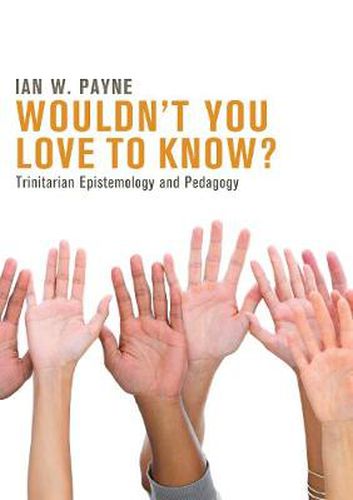Readings Newsletter
Become a Readings Member to make your shopping experience even easier.
Sign in or sign up for free!
You’re not far away from qualifying for FREE standard shipping within Australia
You’ve qualified for FREE standard shipping within Australia
The cart is loading…






This title is printed to order. This book may have been self-published. If so, we cannot guarantee the quality of the content. In the main most books will have gone through the editing process however some may not. We therefore suggest that you be aware of this before ordering this book. If in doubt check either the author or publisher’s details as we are unable to accept any returns unless they are faulty. Please contact us if you have any questions.
With all the jumble of human disagreements, how can we know? Can the Christian church think coherently about knowledge? Can it regain confidence in teaching what it knows? In an increasingly divided and pessimistic postmodern world this book offers a theology for epistemology and for pedagogy that aims to be faithful and fruitful. Building on Karl Barth, it argues that God’s knowing guides how humans know. We should imitate God’s epistemic stance–his love–for that is the best model for knowing anything. The Trinitarian theme in Barth identifies three key concepts: committedness, openness, and relationality. These mean being committed and open towards what we wish to know. Relational open committedness also profoundly clarifies and shapes what love means in knowing and in teaching. This book unpacks an epistemology and pedagogy of love. Wouldn’t you love to know?
$9.00 standard shipping within Australia
FREE standard shipping within Australia for orders over $100.00
Express & International shipping calculated at checkout
This title is printed to order. This book may have been self-published. If so, we cannot guarantee the quality of the content. In the main most books will have gone through the editing process however some may not. We therefore suggest that you be aware of this before ordering this book. If in doubt check either the author or publisher’s details as we are unable to accept any returns unless they are faulty. Please contact us if you have any questions.
With all the jumble of human disagreements, how can we know? Can the Christian church think coherently about knowledge? Can it regain confidence in teaching what it knows? In an increasingly divided and pessimistic postmodern world this book offers a theology for epistemology and for pedagogy that aims to be faithful and fruitful. Building on Karl Barth, it argues that God’s knowing guides how humans know. We should imitate God’s epistemic stance–his love–for that is the best model for knowing anything. The Trinitarian theme in Barth identifies three key concepts: committedness, openness, and relationality. These mean being committed and open towards what we wish to know. Relational open committedness also profoundly clarifies and shapes what love means in knowing and in teaching. This book unpacks an epistemology and pedagogy of love. Wouldn’t you love to know?